Chikungunya in Thailand
Refreshing as it may seem, the rainy season in Thailand comes with a long list of illnesses. Among the list is Chikungunya, a mosquito-borne disease with symptoms similar to Dengue and Zika. As there’s no vaccines and treatment against the virus, the best preventive measure is to avoid mosquitoes.

This Pacific Prime Thailand article will go into detail on what Chikungunya is, its transmission, its common symptoms, how it is diagnosed and treated, and ways to prevent it. Most importantly, it will discuss the importance of expat health insurance.
What is Chikungunya?
Chikungunya is a re-emerging disease from mosquitoes infected with a ribonucleic acid virus called the Chikungunya virus (CHIKV). While the symptoms of Chikungunya are similar to Dengue and Zika viruses in humans, it’s mostly recognized by fever, headache, rash, as well as joint and muscle pain.
The name Chikungunya is derived from Kimakonde, a language spoken in southeast Tanzania and northern Mozambique where the disease was first discovered. It translates to “that which bends up” as patients often suffer from severe joint and muscle pain, hence their crooked posture.
As of now, there’s unfortunately no vaccine or medication against CHIKV, so it’s crucial to protect yourself from mosquito bites when traveling to places with a history of disease outbreaks like Brazil, Paraguay, Argentina, Bolivia, and Thailand.

Chikungunya Transmission
Research in modern days indicates that Chikungunya disease doesn’t spread directly from humans to humans. The two types of mosquitoes mainly responsible for the transmission of the virus are Dengue (Aedes aegypti) and Asian Tiger (Aedes albopictus) mosquitoes found in tropical regions.
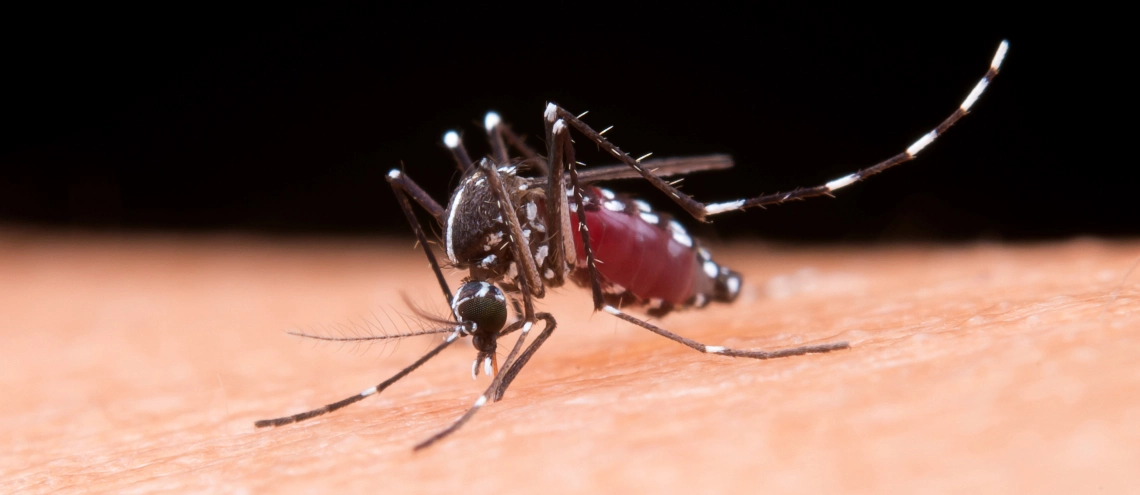
The cycle primarily begins when a mosquito bites an infected person before passing the virus to an uninfected person. Apart from this, CHIKV can be transmitted through:
- Vertical transmission (mother-to-child transmission inside the utero)
- Intrapartum transmission (mother-to-child transmission while giving birth)
- Laboratory blood-borne transmission (infection via contact with infected blood in a lab)
Since Dengue and Asian Tiger mosquitoes are also capable of transmitting diseases from Dengue and Zika viruses, it’s essential to differentiate the symptoms of each disease so that we can identify them correctly.
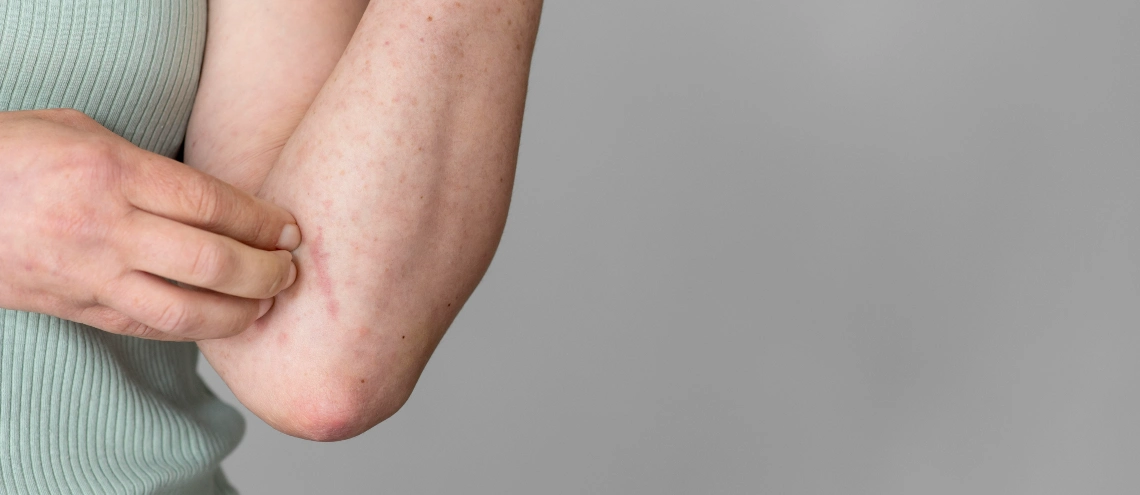
Chikungunya Disease Symptoms
In the four to eight days after being bitten by a mosquito infected with CHIKV, patients often develop an abrupt onset of fever with joint pain that will last for two to 12 days. While many symptoms resemble those from Dengue and Zika viruses, Chikungunya fever is primarily characterized by:
- Sudden high fever, including headache, nausea, and fatigue in some cases
- Severe joint pain (arthralgia), including swelling, muscle pain, rash, and pink eye in some cases
More severe symptoms that can lead to death, albeit very unlikely, as well as long-term effects such as developmental delays or dementia may develop if you’re a member of the following groups:
- Newborns
- Adults older than 65 years old
- People with underlying medical conditions

As the symptoms from CHIKV overlap with other diseases, patients are advised to look for signs of tenosynovitis, inflammation of the protective sheath around tendons, which isn’t a feature of Dengue and Zika infections.
A 2006 study has revealed that people infected with CHIKV in Thailand have more abrupt onset of symptoms and shorter febrile courses compared to Dengue patients. “Maculopapular rashes, conjunctival injection, and arthralgia” are also “significantly more frequent” in Chikungunya patients.
Most of the mentioned symptoms usually dissipate after roughly 10 days, but joint pain in patients may persist from days to years, depending on its severity. The good news is you can only be infected with CHIKV once, and you’re likely to develop life-long immunity after infection.

Chikungunya Diagnosis and Treatment
If you suspect you’ve been infected with CHIKV, especially after coming back from an area with ongoing viral outbreaks, we recommend that you seek professional help. The doctor will conduct serological exams to find antibodies to the virus and provide you with appropriate treatment plans.
It’s pivotal to make sure you don’t have dengue fever, as aspirin or non-steroidal anti-inflammatory drugs may increase the risk of bleeding in dengue patients. And since there aren’t vaccines or medicines that can specifically tackle CHIKV now, treatment will focus on relieving the symptoms instead.

Chikungunya Prevention
As stated that there’s still no vaccines or medication against CHIKV, staying up-to-date about the areas with recent viral outbreaks and protecting yourself from getting mosquito bites is key to Chikungunya prevention.
Fortunately, you can ensure a mosquito-free experience for you and your loved ones when traveling in Thailand by following the three preventive measures compiled from the guidelines of the United States’ Centers for Disease Control and Prevention (CDC).
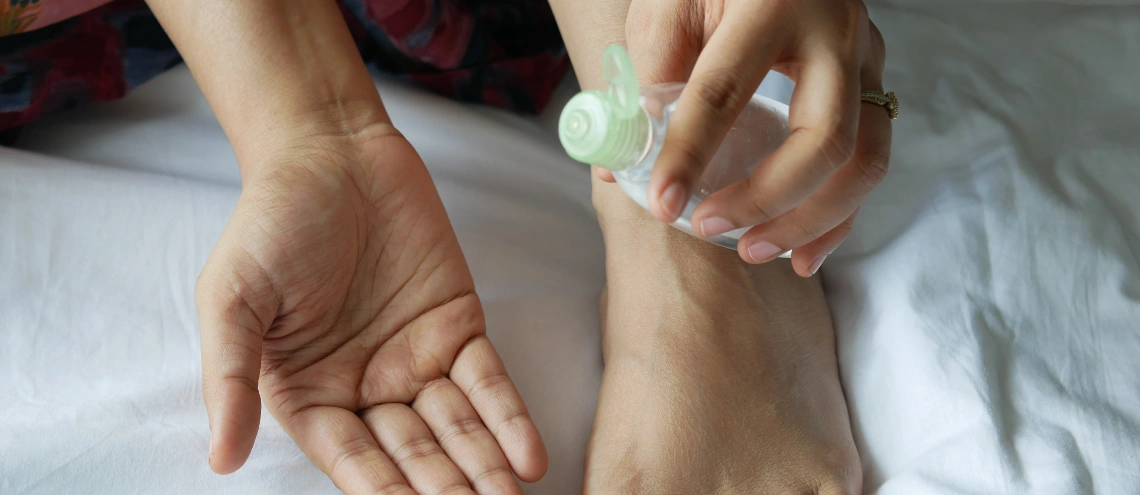
1. Carry Insect Repellents with You
As the name suggests, insect repellents are used to repel insects, including mosquitoes, ticks, and other little fellows that like biting. While there are numerous products to choose from, look for the ones on the Environmental Protection Agency-registered repellent list as they’re safe and potent.
Apart from following the instructions on the label of your insect repellent, the Centers of Diseases Control and Prevention (CDC) also recommends using a repellent with one of the following ingredients to ensure its effectiveness:
- DEET
- Picaridin (also known as KBR 3023 and Icaridin)
- IR3535
- Oil of lemon eucalyptus (OLE)
- Para-menthane-diol (PMD)
- 2-undecanone
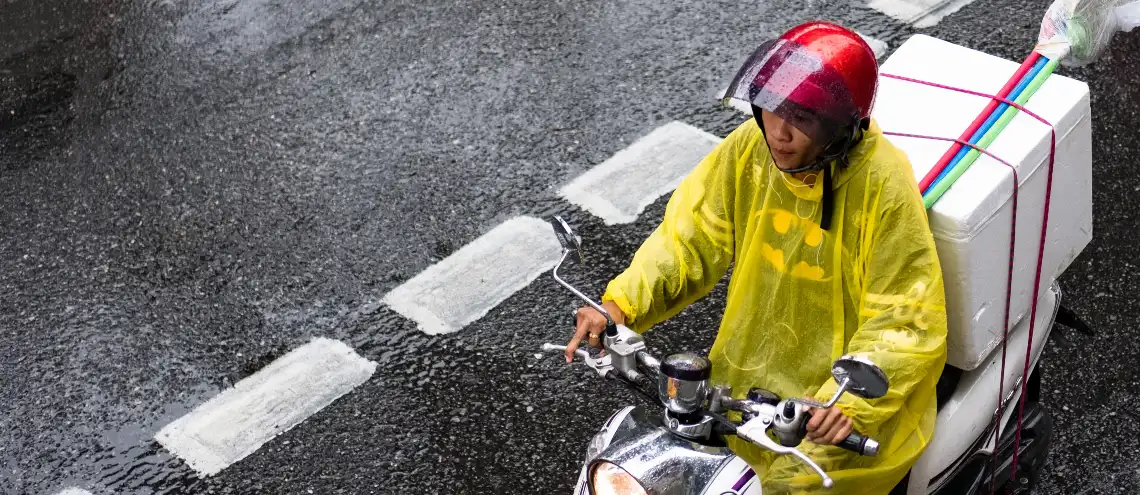
2. Wear Loose-fitting Clothes that Cover Your Arms and Legs
Loose-fitting clothing helps prevent mosquitoes from reaching your skin. CDC suggests that you also use 0.5% permethrin to treat your clothes, shoes, bags, and other equipment as it acts as an insecticide that provides protection even after washing your clothes multiple times.
It’s highly recommended to use permethrin and any insect repellent on your long-sleeved shirts and pants and not directly on your body since the products may cause irritation or allergic reactions upon direct contact with the skin.
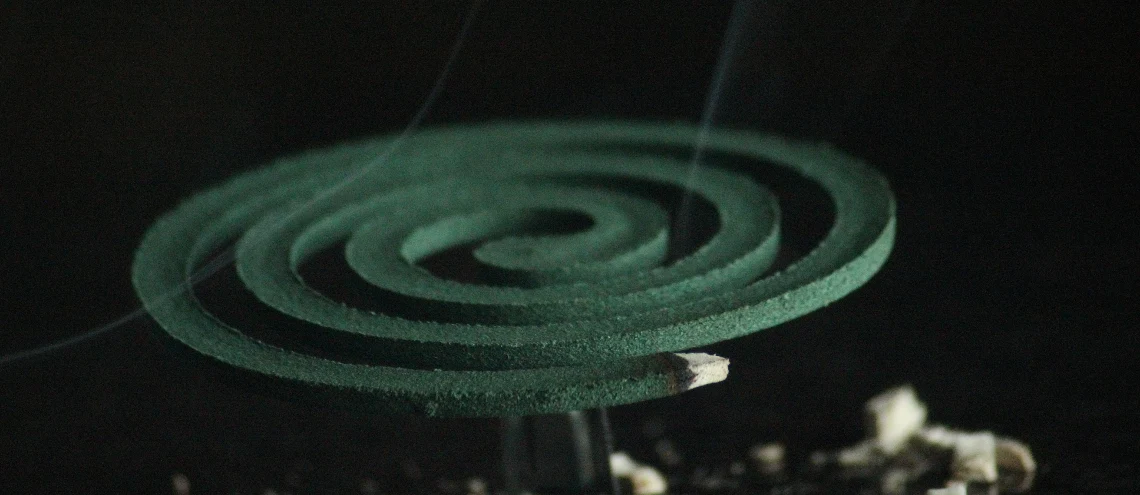
3. Take Measures to Control Mosquitoes Indoors and Outdoors
There are several ways to reduce mosquito breeding sites both inside and outside of your home and the hotel you’re staying at during a trip. By closing windows and doors, using air conditioners, emptying water bodies and using mosquito nets, the risk of getting mosquito bites is also lowered.
Conclusion
The rainy season in Thailand comes with mosquitoes carrying viruses, including Chikungunya. If you’re coming to Thailand during this time, please make sure to read up on malaria in Thailand. Additionally, you may want to read about hepatitis A and B in Thailand and the top 13 diseases in Thailand.
Still, the chance of contracting the disease may occur even after taking great measures to prevent it. This is when another preventive measure such as health insurance comes in handy. With the right plan, you can avoid unforeseen medical bills and thoroughly focus on your recovery.

Whether you’re traveling to the tropical paradise called Thailand by yourself, with your family, or whether you’re an expat living in this beautiful country, our team of experts at Pacific Prime Thailand can ensure you have a financially-safe means of preventing excessive medical expenses.
Utilizing more than 20 years of experience in the insurance industry, Pacific Prime Thailand can help you sort out a health insurance plan that meets your needs.
Get yourself impartial advice and a free plan comparison service by contacting us today!

Frequently Asked Questions
Is Chikungunya the same as dengue?
Chikungunya and dengue are closely related, as they’re carried by the same types of mosquitoes, but they’re essentially caused by different types of viruses. The most prominent sign of Chikungunya fever is severe joint pain with onsets of symptoms that are more abrupt than those of dengue fever.
How serious is Chikungunya?
Chikungunya is rarely fatal. In fact, the probability of death from Chikungunya is about one in 1,000 cases. However, the virus can cause severe problems and long-term illnesses in newborn babies, older people, and people with medical conditions.
How long does it take to recover from Chikungunya?
Chikungunya patients normally take less than 10 days to recover from the fever and other symptoms such as headache, nausea, or pink eye, while joint pain may last for a few days to several months or years.
- Chikungunya in Thailand - March 27, 2025
- HIV Insurance in Thailand - March 17, 2025
- The Top 10 Best Dental Clinics in Pattaya - January 13, 2025






Comments
Comments for this post are closed.
We'll notify you
when our team replies!